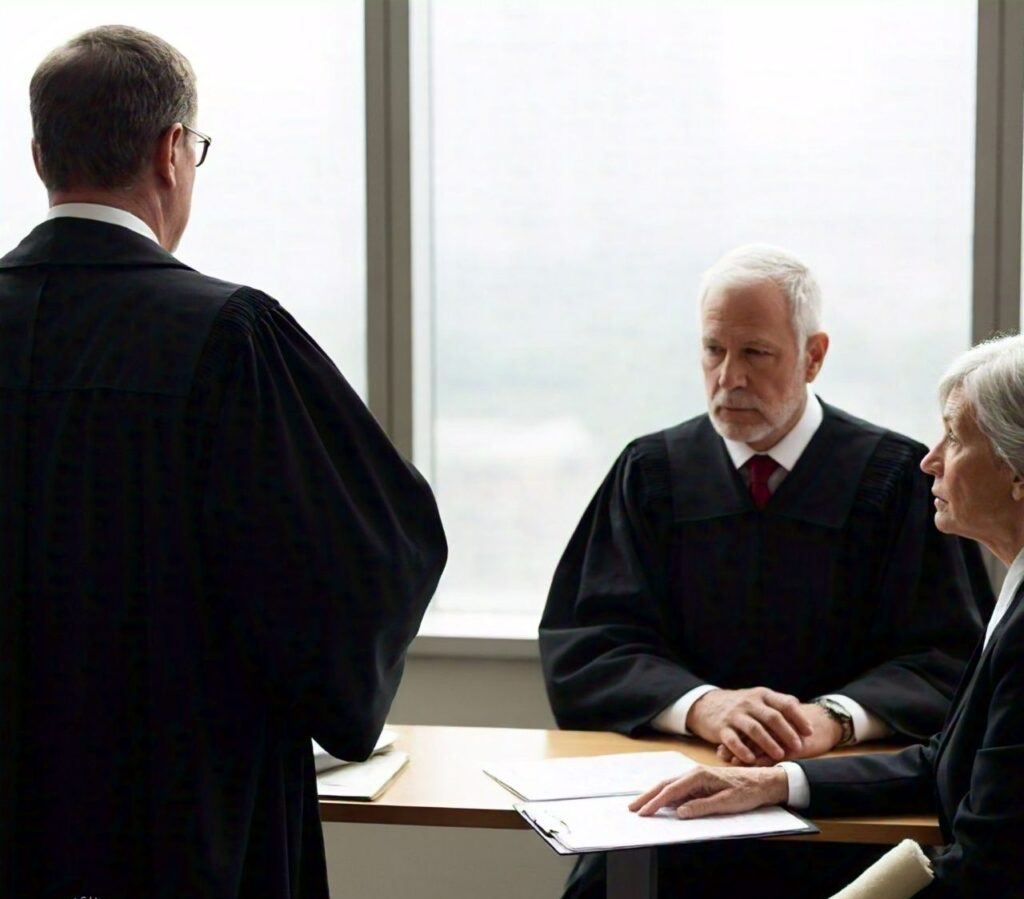Introduction
Personal injury lawsuits are a vital aspect of the legal system, enabling individuals who have been injured due to the negligence or wrongful actions of others to seek justice and compensation. Understanding personal injury cases, the legal process, and how to file a claim is crucial for anyone who has suffered an injury. In this guide, we’ll walk you through everything you need to know about personal injury lawsuits, from the basics of filing a claim to understanding the types of cases and the compensation you can expect.

What Are Personal Injury Lawsuits?
A personal injury lawsuit is a legal case filed by an individual who has suffered physical or psychological harm due to another person’s negligence or intentional actions. These cases are part of civil law, and the injured party seeks compensation for their medical bills, lost wages, pain and suffering, and other damages.
Types of Personal Injury Cases
Personal injury cases can arise from various incidents. Some of the most common types include:
- Car Accident Injury Lawsuit
Car accidents are one of the most frequent causes of personal injury lawsuits. When another driver is at fault for causing an accident, the injured party may file a lawsuit to claim compensation for their injuries and losses. - Slip and Fall Injury Lawsuit
Slip and fall accidents are often caused by hazardous conditions on someone’s property. If you fall due to a property owner’s negligence, you might have grounds for a slip and fall injury lawsuit. - Workplace Injuries
Injuries occurring at work can also lead to a personal injury lawsuit. These lawsuits can be filed when the injury was caused by unsafe working conditions or employer negligence. - Medical Malpractice
This occurs when a healthcare professional’s negligence leads to harm to the patient. It involves mistakes or substandard care provided by doctors, nurses, or other medical staff. - Product Liability
If a defective product causes injury, the manufacturer, distributor, or seller may be held responsible for the damages.
Filing a Personal Injury Claim
The process of filing a personal injury claim is complex, requiring knowledge of the law, the ability to gather evidence, and sometimes even expert testimony. Here’s how you typically file a claim:
- Seek Medical Attention
Your health should be the top priority. Even if you don’t think your injury is severe, it’s crucial to see a healthcare provider. Medical records will be vital to your case. - Document the Incident
Take photographs of the accident scene, collect witness statements, and document any details that might help your case. - Notify the Responsible Party
Inform the person or organization responsible for your injury that you intend to pursue a claim. - File the Claim
This is typically done through the responsible party’s insurance company. However, if the insurance company offers insufficient compensation, you might need to file a lawsuit in court.

The Personal Injury Legal Process
Understanding the personal injury legal process is essential for any claimant. The typical steps include:
- Consultation with an Attorney
It’s advisable to work with a personal injury lawyer who specializes in your type of case. They can guide you through the process, ensure you meet deadlines, and help you get fair compensation. - Investigation
Your attorney will gather all the necessary evidence, including medical records, accident reports, witness statements, and photographs. - Negotiation
Most personal injury claims are settled out of court. Your lawyer will work with the defendant’s insurance company to negotiate a settlement. - Filing a Lawsuit
If negotiations fail, a formal lawsuit may be filed in court. This begins the litigation process, which may involve pretrial motions, depositions, and court hearings. - Trial
If the case goes to trial, both sides present their evidence, and a judge or jury will decide on the outcome.
Personal Injury Compensation
One of the key reasons to pursue a personal injury lawsuit is to receive compensation for the losses you’ve suffered. Compensation can cover various aspects of your injury, including:
- Medical Expenses
This includes hospital bills, doctor visits, surgeries, physical therapy, and medication. - Lost Wages
If you missed work due to your injury, you might be entitled to compensation for lost wages. - Pain and Suffering
You may be able to claim for physical and emotional pain caused by the injury. - Punitive Damages
In some cases, punitive damages may be awarded if the defendant’s actions were particularly egregious.
Legal Advice for Personal Injury
It’s always a good idea to consult with a lawyer before taking any legal steps. A skilled attorney can provide valuable advice on:
- Whether your case is strong enough to proceed with a lawsuit.
- How to accurately calculate the damages you deserve.
- The statute of limitations, or how much time you have to file your claim.

Understanding Personal Injury Cases
Each personal injury case is unique. It’s important to understand the specifics of your case and how they influence your chances of success. Factors that can affect your case include:
- The severity of the injury
- The clarity of evidence proving fault
- Witness testimonies
- State laws and statutes of limitations
Personal Injury Lawsuit Steps
When you begin the lawsuit process, you’ll go through the following steps:
- Initial Consultation with Lawyer
- Filing of the Complaint
- Discovery Process
- Negotiations and Settlement
- Trial (if needed)
Each step will involve close collaboration with your legal team to ensure that your case is presented in the best possible light.
The Importance of Documenting Everything
Proper documentation is one of the most critical aspects of a personal injury lawsuit. From medical records to photos of the accident scene, every detail counts. Be sure to:
- Keep a record of your medical treatment.
- Take photos of the injury and accident scene.
- Save any correspondence from insurance companies.
Car Accident Injury Lawsuit
Car accidents are one of the most common causes of personal injury lawsuits. If you’ve been involved in a car accident, you might be entitled to compensation for:
- Medical expenses
- Property damage
- Lost wages
- Pain and suffering

Why You Need Legal Advice for Personal Injury Cases
One of the most critical steps in a personal injury lawsuit is seeking legal advice. A personal injury lawyer can provide guidance on how to navigate the legal complexities, ensure that you meet all deadlines, and help you understand your rights. Whether it’s a slip and fall injury lawsuit or a car accident injury lawsuit, having an experienced lawyer can significantly increase your chances of success. They will assess the strength of your case, advise on the best approach, and handle the intricate details, such as communicating with insurance companies and representing you in court if needed.
Common Mistakes to Avoid in Personal Injury Lawsuits
When pursuing a personal injury lawsuit, it’s easy to make mistakes that could jeopardize your claim. Here are a few common pitfalls to avoid:
- Failing to Seek Medical Attention Immediately: Even if you don’t think your injury is serious, it’s essential to get checked by a doctor. Medical documentation is a cornerstone of any personal injury case.
- Not Documenting the Incident: Failing to take photos of the accident scene or gather witness information can harm your case.
- Settling Too Quickly: Insurance companies often offer quick settlements that may not fully cover your medical bills or long-term suffering. It’s important to evaluate the offer carefully, often with the help of a lawyer.
How Long Does the Personal Injury Legal Process Take?
The timeline for a personal injury lawsuit can vary greatly depending on the complexity of the case, the severity of the injury, and whether it goes to trial. In simple cases, a settlement can be reached within months, while more complex cases may take years. Filing a personal injury claim typically begins with a demand letter to the responsible party or their insurance company, followed by negotiations. If an agreement isn’t reached, the case may proceed to litigation, which can take longer.

Understanding the Role of Insurance in Personal Injury Lawsuits
In many personal injury cases, the responsible party’s insurance company will play a key role in resolving the matter. Insurance companies will assess the value of your claim and may offer a settlement, but their goal is often to minimize payout. This is where having legal representation becomes crucial. Your personal injury lawyer can negotiate with the insurance company to ensure you receive fair compensation for your medical expenses, pain and suffering, and lost wages.
The Impact of Comparative Fault in Personal Injury Cases
In some cases, you may be partially responsible for the injury. However, even if you are partly at fault, you may still be eligible for compensation, depending on your state’s laws. In a personal injury lawsuit, many states follow comparative fault rules, which allow you to recover damages based on the degree of fault. For example, if you were 20% responsible for the accident, you could still recover 80% of the damages.
The Importance of Medical Evidence in Personal Injury Lawsuits
When pursuing a personal injury lawsuit, medical evidence is one of the most important pieces of your case. The documentation provided by doctors, specialists, and hospitals will serve as proof of the extent of your injuries. This includes medical records, test results, prescriptions, and even photographs of your injuries. Ensuring that your medical expenses are thoroughly documented can make or break your claim. Additionally, your attorney may consult medical experts to testify about the long-term effects of your injury, which can increase the value of your claim.

Settlement vs. Trial: Which Option is Right for You?
After filing a personal injury claim, you’ll likely face a choice: settle or go to trial. The majority of personal injury cases are settled before they reach trial. A settlement can be a quicker resolution, but you may not receive as much compensation as you would if you went to trial. Trials can take longer and are more expensive, but they give you the chance to have a judge or jury determine the outcome. A personal injury lawyer can help you weigh the pros and cons of each option and make the best decision for your case.
How to Prove Liability in a Personal Injury Case
To win a personal injury lawsuit, you must prove that the defendant was responsible for your injury. This often involves demonstrating that the defendant’s actions (or lack of actions) directly led to your harm. For example, in a slip and fall injury lawsuit, you would need to prove that the property owner failed to maintain a safe environment, and this negligence caused your injury. In a car accident injury lawsuit, you would need to prove that the other driver was at fault due to reckless or negligent behavior, such as speeding or distracted driving.
When to Consider a Personal Injury Lawsuit
Not every injury warrants a lawsuit, but if you’ve sustained serious harm that has caused significant medical expenses, lost income, or long-term suffering, a lawsuit may be necessary. If the responsible party or their insurance company refuses to offer fair compensation, filing a personal injury lawsuit can help you recover the costs associated with your injury. The decision to file a lawsuit should be based on the extent of your damages and whether there is a clear case of negligence or wrongful behavior.
How Much Does a Personal Injury Lawsuit Cost?
Many personal injury lawyers work on a contingency fee basis, meaning you only pay if you win your case. The typical fee is a percentage of the compensation you receive, usually ranging from 33% to 40%. This means that if you settle for $100,000, your lawyer’s fee might be around $33,000 to $40,000. While there are other costs associated with filing a lawsuit, such as court fees and expert witness fees, many of these expenses are covered by the lawyer upfront and are only paid if you win your case.

FAQs (Frequently Asked Questions)
- What should I do immediately after an accident?
Seek medical attention, document the scene, gather witness contact information, and notify the responsible party. - How long do I have to file a personal injury lawsuit?
This depends on your state, but generally, you have between one and three years to file a claim. - What is the statute of limitations for personal injury lawsuits?
The statute of limitations varies by state but typically ranges from one to three years. - How much compensation can I receive in a personal injury case?
Compensation can vary greatly depending on the severity of your injury, the costs you’ve incurred, and whether punitive damages are awarded. - Do I need a lawyer to file a personal injury claim?
While it’s possible to handle a claim yourself, hiring a lawyer increases your chances of a fair settlement. - How long will my personal injury lawsuit take?
Lawsuits can take anywhere from several months to several years, depending on the complexity of the case and whether it goes to trial. - Can I still file a lawsuit if I was partially at fault for the accident?
Yes, depending on your state’s laws. Many states have comparative fault rules that allow you to recover damages even if you share some responsibility for the incident. - What is the difference between a settlement and a trial?
A settlement is a negotiated agreement where you accept compensation without going to trial. A trial involves presenting your case in court for a judge or jury to decide. - What types of damages can I receive in a personal injury lawsuit?
You may receive compensation for medical expenses, lost wages, pain and suffering, and punitive damages in some cases. - What happens if I lose my personal injury case?
If you lose, you may be required to pay court costs and the other party’s legal fees, depending on the outcome.
Conclusion
Personal injury lawsuits can be complex, but they provide an essential mechanism for those harmed by negligence to seek justice. By understanding the personal injury legal process, knowing what steps to take, and seeking appropriate legal advice, you can maximize your chances of receiving fair compensation for your injuries.








